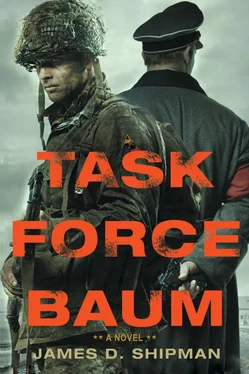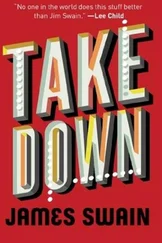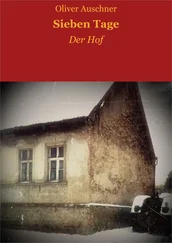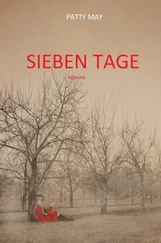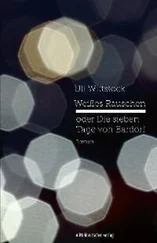The XO shook his head. “I told you, I’m not leaving him behind.” Waters’s voice was laced with steel. Goode seemed to be thinking the matter over for a second, and then he relented.
“Have it your way. But he has to keep up. God knows what’s in front of us. He’s your problem. I’ve got to attend to the rest of the men.”
“I’ll take care of it,” answered Waters. “Let’s go, boys.”
The kriegies wrapped their arms more tightly around Curtis and pulled him along again. Waters walked to the front door and opened it. The yard was bustling with POWs and guards walking frantically in every direction. The sound of the booming guns was louder outside and seemed closer to Curtis, although it could just be his imagination. His head was clearing, and his sight now seemed entirely returned to him, although he had a scorching headache. He wanted to lift a hand to the top of his head, to see if there was any blood there, but he was afraid he would lose his balance and fall.
As he looked more closely, Curtis saw that there was a pattern to the seemingly random movement. The men were being herded to his right, past the hospital building and beyond. Waters’s little group groped its way into the mass and hobbled along, trying to keep up with the shambling mass of humanity as they worked their way past the infirmary under the clipped barking of the German guards. They eventually cleared the hospital and came to an area of the camp near the fence that Curtis had rarely seen before. There was a small outbuilding for the guards here, a place to warm up in between circuits around the camp. Beyond the building was the fence and a gate that led to the soldiers’ quarters and the Kommandant ’s office.
The fence here was usually closed and guarded by at least two men with machine pistols. Curtis was surprised to see the gates open wide. The guards were leading the POWs through the opening and into the German area beyond. He looked closely at the compound, afraid of a place that was forbidden, that had always meant instant death. He looked for any signs of an ambush, machine guns, or krauts poking out of the towers or windows, but for now, all seemed deserted. His back still burned, but fear was a powerful narcotic, driving down the pain as his body took over, seeking to survive.
A series of trucks lined up in single file within the German portion of the camp. They were vehicles similar to the American deuce-and-a-half, with a large canvas cover in the back supported by metal hoops. The mass of POWs jumbled up as the group neared the row of trucks. Curtis strained to see through the throng, ignoring the pain in his back. He could just make out the POWs climbing into the bed of some of the lead trucks. So the Germans were truly intending to evacuate them. He’d feared they were going to liquidate them here and now.
There were at least thirty trucks waiting. Curtis knew this would transport only a fraction of the POW population. He wondered if the vehicles would make a return trip or if the rest of the population would be forced to walk. He knew he would never make it if he was forced on a march of even a mile. He kept an anxious eye on the loading as they gradually drew nearer to the front. He prayed there was still room for him before the convoy was full.
Finally, he reached the head of the line, and he was pulled toward the last of the trucks. He searched around for Waters but could not find him. The lieutenant colonel must have been forced into another group by the push and pull of the crowd. He looked to his right and left, at the struggling faces of the kriegies who were helping him. Everyone was weak and undernourished after months in the camp. He saw the grimaces in their cheeks and the fatigue in their eyes. They were sacrificing precious energy they might need in the uncertain future on his behalf. He thanked God for them.
They reached the very last of the trucks. Curtis saw, to his dismay, that the vehicle was already full. The men shook their heads as he approached. “Please,” he said, “I’m badly hurt. I can’t walk.” The POWs kept their eyes averted, starting at the floor of the truck.
Curtis started to turn away when a young lieutenant rose. “I’ll give up my seat for you,” he said. He walked past the somber faces of the other men in the back, all looking at their feet. He jumped down. The boy, no more than twenty-one, gripped Curtis’s hands.
The captain was overcome with guilt. “That is kind, but it’s your spot.”
The lieutenant shook his head. “You need it more than I do, buddy.”
The men in the back were helpful now. One of them reached out a hand and gripped Curtis. With others shoving from behind, he was drawn swiftly up into the back of the vehicle. He grimaced from the pain, but he did not shout out, and hand by hand he was drawn back to a place among the kriegies, crouched on hard benches beneath the canvas.
He tried to look into those faces, but it was difficult. The brightness of the opening contrasted sharply with the darkness within. The temperature was considerably colder inside, and his breath exhaled in a frosty cloud. “Where are we going?” he asked, hoping someone would know something, anything.
“God knows,” answered one of the men, a gruff-looking major sitting in the dimness directly across from him. “But if there’s any walking, you are damned for sure.”
Curtis knew the man was right. He’d lost his escort when he took this spot in the truck. And there were no more available vehicles in the convoy. If they were forced to march, even a short distance, he would have to ask for help and hope that these men were as generous as the others. He didn’t know if he could walk even a few steps at this point without assistance. He no longer felt the raging dizziness he’d experienced before, but his lower back still throbbed and burned, and he wasn’t sure he could manage even a hobbling shamble on his own.
The artillery rumbling had ceased. Curtis wondered what that meant. Another failed attack? The Americans always seemed just a little out of reach. It made little difference at this point, at least for now. They were headed farther into Germany, and if they made it to the new camp, their liberation would wait weeks, months, or perhaps longer. He was tired of hope—that betrayer of truth. For now, he must focus on survival.
They sat that way for a long time, waiting in the cold and the darkness. The engine still rattled and coughed but provided them no warmth, no solace. The pain in his back increased on the hard seat, and he braced himself, preparing for the harsh jouncing of the vehicle on war-torn country roads.
Outside, he heard harsh yelling in German and a growing murmur. Curtis strained his ears, trying to understand what was going on. A guard appeared at the rear of the truck. He was screaming at them, his face scarlet. “ Raus! ”
What was going on? Why were they supposed to get out? They hadn’t gone anywhere. The men at the end stared at the German in surprise, obviously not sure how to react. He raised his rifle and jabbed one of them with the end of the barrel, harshly repeating his command. The man rose, arms in the air, and jumped down, followed by the POW across from him.
“Help me,” Curtis pleaded to the man across from him.
“What’s wrong with you?”
“It’s my back. I’m hurt. I’m not sure I can walk by myself.”
The emptying line of men rapidly reached them. The man watched him for a moment and reached out a hand, taking Curtis by the arm and pulling him as gently as possible into a standing position. Curtis shouted at the stabbing pain of the sudden movement. The guard watching fixed him with narrowed eyes. Curtis forced himself to be silent and shambled the few feet to the end of the bed, trying to keep his face from betraying his pain.
Читать дальше
